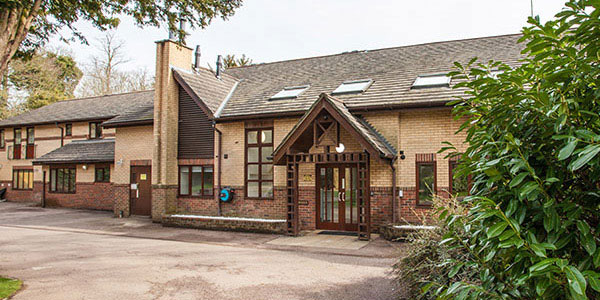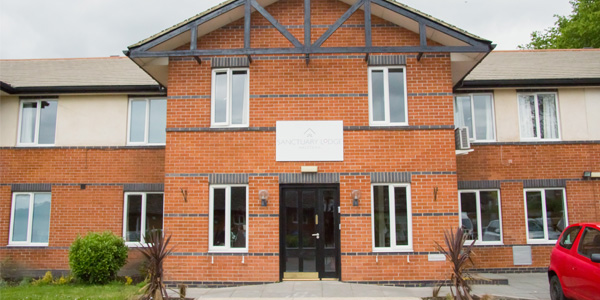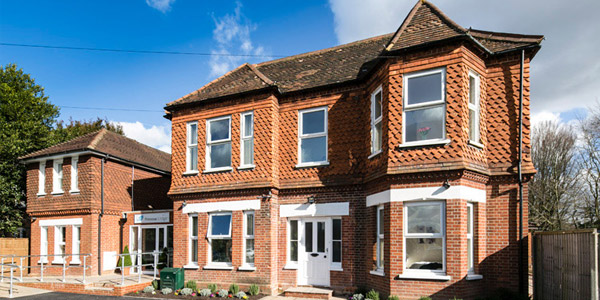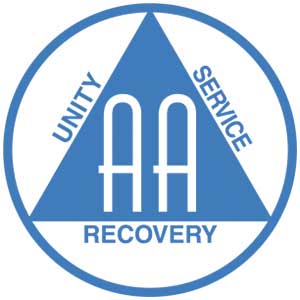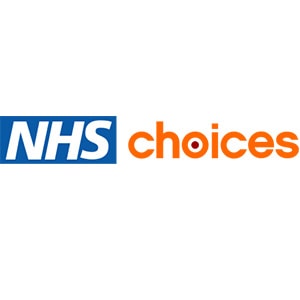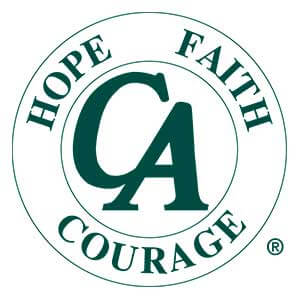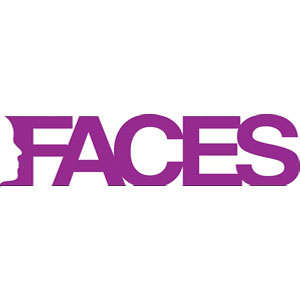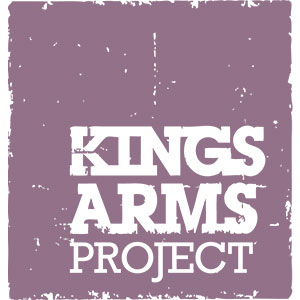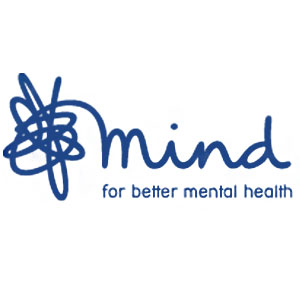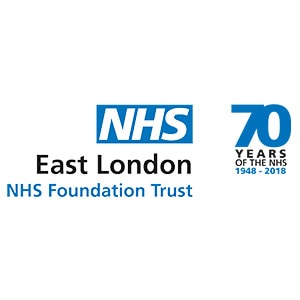Alcohol & Drug Rehab in Bedford
Sadly, nowhere in Britain is untouched by the modern addiction epidemic – and this remains true for quiet towns such as Bedford as it is for the inner-city regions which most commonly come to mind when thinking about substance abuse. Every year thousands of lives are lost to drink and drugs – legal and illegal – and the cost to those left behind and the society at large is immeasurable.
However, all is not lost: now more than ever, facilities have arisen to treat these addicts and set people back on to the path to a happy healthy life. If you or a loved one are struggling with addiction, you too can find help at such a place. Read on to discover how rehab could save your life…

Liberty House Clinic is a fully furbished detox and rehabilitation facility…
- Private
- Holistic Treatment
- Award Winning
- Residential
Featured Rehabs
Banbury Lodge is a private UKAT rehab facility based in Banbury, Oxfordshir…
Sanctuary Lodge is a state of the art detox and rehabilitation facility, se…
At Primrose Lodge we genuinely care that our patients make a full recovery …
-
Chapter House, Ste Peter De Merton Church, De Parys Ave (Town End)
MK40 2TX0 review- Free
- Group Setting
- 12 Step
-
- One to One
- Outpatient
- Outpatient Option
-
- Free
- Outpatient
- 12 Step
-
- Domestic Abuse
- Parental Support
- Free
- Outpatient
-
- Homelessness
- Substance Misuse
- Christian
- Free
-
- Mental Health
- Substance Misuse
- Free
- Free
-
- Drugs & Alcohol
- Substance Misuse
- Free Service
- Free
- Load More
Drug & Alcohol Rehab Services in Bedfordshire
- A
- B
- C
- D
- E
- F
- G
- H
- I
- J
- K
- L
- M
- N
- O
- P
- Q
- R
- S
- T
- U
- V
- W
- X
- Y
- Z
What Is Rehab?

Rehab – more properly, “residential rehabilitation” – is the term given to both the treatment of addiction on-site at a dedicated facility, and the facility itself. At rehab – typically set in spacious, pleasant tranquil surroundings in which they can focus wholly on their recovery, safe in the knowledge that the facility is completely confidential
Addicts are provided with a holistic treatment comprising a detoxification phase (which may be medically assisted) and a period of therapy aimed at uncovering the root causes of their addiction and providing them with defence mechanisms against relapse for their return to the outside world.
As a result of this bilateral approach to treatment – addressing both the immediate problem of physical dependency and the longer-term challenge of psychological addiction – rehab is generally considered to be the most effective means of combating addiction, in terms of its ability to set patients on the path to a permanent recovery.
How Can I Get Someone into Rehab?
Addiction ruins lives, and the sooner an addict can set out upon the road to recovery, the better – not simply because every day that goes by whilst they struggle with addiction is one more which cannot be spent enjoying all the wonderful things which a drug-free life can offer.
But because the consequences of addiction for physical and mental health can be catastrophic, and each day spent feeding an addiction is another day of damage to mind, body and soul. The quality of NHS addiction treatment services is very high, but unfortunately so is demand for them and waiting times can be extremely long.
If you or someone you love are wrestling with addiction, don’t waste any more time: reach out today to discuss some of the private options which may be available to you. Call 0800 024 1455 to speak with an addiction specialist.
Advantages of Private Rehab
Rehab provides a peaceful, secluded, secure and confidential setting in which an addict can focus fully on their recovery without the distractions and temptations of the outside world and the environment in which they have succumbed to repeated substance abuse and addiction.
Upon entering rehab, an addict will undergo a thorough assessment before embarking on a period of detoxification supervised and assisted by highly experienced medical personnel on hand to assure that detox and withdrawal are as safe and as comfortable as possible. After detox, patients engage in various forms of therapy – both one-to-one and group – aimed at addressing the root causes of their addiction and developing the defence mechanisms necessary to safeguard against relapse; they will also benefit from bespoke dietary and fitness plans and from an array of other resources available on site.
At the end of a stay in any quality rehab, patients will receive free aftercare for up to a year: recovery is not complete the moment a patient walks out of the facility but is an ongoing process with numerous pitfalls which rehab can continue to help the recovering addict navigate around.
What Does Rehab Cost in Bedfordshire?
The cost of private rehab in or near Bedford can vary significantly by treatment programme, and depending on which of a variety of optional extras are selected. As a rough guide, standard costs range from between £5,500 and £11,000 per month, though the cheapest rehab treatment can start from as little as £834 per week. For more details, call 0800 804 4755.
NHS Addiction Treatment Options Bedford
If you feel that private rehab is currently not an option for you for reasons of cost, or if you do not feel that you are able to spend the required time away from family and/or work obligations, do not despair: various NHS and charity resources can be found in Bedford and across Bedfordshire which can help you combat your addiction. Consult your GP about which of these resources may be available to you and would be most appropriate for your specific situation.
Advantages of NHS Treatment
The primary advantage of NHS treatment is, of course, financial: private rehab comes at a cost which may be off-putting to some addicts (although set against the costs – financial and otherwise – of addiction, this investment may be comparatively minor) and NHS options are free at the point of use.
They are also very accessible geographically in that the NHS operates in every corner of the country (though waiting times vary and may be substantial). Furthermore, the NHS offers a high standard of service, though quality does vary by location.
Addiction Support Groups
Several organisations exist across the country to aid recovering addicts, and some of these operate a support group model. Support groups are groups of individuals who are themselves recovering addicts – some only recently free from addiction, while others may have been clean for many years.
They come together at regular meetings to give and take mutual support: sharing their stories of addiction, giving advice on how to resist relapse, showing solidarity and sympathy when group members are struggling, and providing the simple companionship which can mean so much in times of difficulty and loneliness.
Support group attendees can come from all walks of life, brought together by their shared experience of addiction and recovery; typically, attendance at support groups is free and the only qualification for participation is a commitment to leading a life free of substance abuse.
The most famous support group organisation, and the one on which most others are modelled, is Alcoholics Anonymous (AA) which was founded in 1935 and runs on a 12-step programme of personal and spiritual development, with one of the steps being a recognition that a higher power – such as God – can assist with an alcoholic’s recovery.
Narcotics Anonymous (NA), founded in 1953 and based directly upon the AA model, is the second-largest support group organisation worldwide and caters to recovering drug addicts specifically. In a similar vein, but supporting those recovering from addictions to specific substances, are Cocaine Anonymous (CA), Heroin Anonymous (HA), Marijuana Anonymous (MA) and Crystal Meth Anonymous (CMA), all of which operate 12-step programmes.
There are also support groups such as Al-Anon and Nar-Anon assisting the families and friends of addicts which typically hold meetings alongside those for the addicts themselves.
Support groups typically meet weekly, though each local chapter is managed independently, and meeting times and venues are subject to change.
Each local support group chapter is run independently, and meeting schedules and venues are of necessity subject to change. To find information on meetings in or near Bedford, see the relevant websites: Alcoholics Anonymous
,Narcotics Anonymous; Cocaine Anonymous; Heroin Anonymous; Marijuana Anonymous; Crystal Meth Anonymous.
Types of Counselling

One form of assistance for recovering addicts which is especially beneficial for those with extremely busy schedules is individual counselling – which can be engaged in either following attendance at rehab or other treatment as a supplementary aid to recovery, or potentially as a means of managing an addiction prior to engagement in a full treatment programme.
Private addiction counsellors operate very much like regular psychotherapists, though with an obvious emphasis on tackling the causes and consequences of addiction. Private counsellors offering a wide variety of different approaches to therapy can be found across the country; they can be seen by private appointment on an ongoing basis – usually weekly – and typically charge a fee per appointment. Some counsellors make themselves available for emergency access while others limit access to working hours.
How to get to Liberty House Clinic from Bedford
Liberty House Clinic is a fully furbished 18-bed drug and alcohol detox and rehabilitation facility in a peaceful, picturesque suburban setting in the heart of Luton. Its large, spacious grounds are the ideal place in which to address the key questions at the heart of recovery from addiction, and to embrace its fully comprehensive rehabilitation programme focused on mental, physical and spiritual well-being.
To get to Luton from Bedford Is extremely straightforward: simply follow the A6 for about 30 kilometres and you will arrive in the town; follow signage for the town centre.
Liberty House Clinic
220 Old Bedford Road
Luton
Bedfordshire
LU2 7HP


